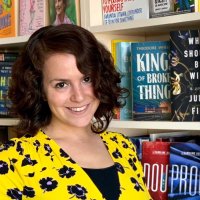Lauren Rosemary Hook of the Feminist Press

I consider myself incredibly lucky to work at a publishing house like the Feminist Press, a nonprofit founded in 1970 to advance feminist voices from around the world. Everything we do is based on our mission, including our acquisitions, and so I don’t have to justify my editorial choices based on the bottom line. Instead, I think about how a book fits into our mission to create a world where everyone sees themselves in a book, and I discuss the project with the whole team. Over the years, I’ve taken on many authors who experienced their fair share of rejection and unsolicited advice.













